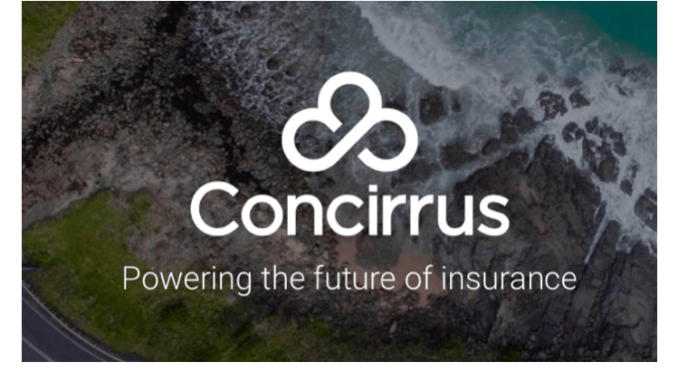
London-based Concirrus won overall best pitch and the trophy for its software platform, Quest, which ‘leverages big data and machine learning to give marine insurers new and more insightful risk data’, especially in connection with behavioural analytics.
Sounds exciting, but what does that mean?
This is what Concirrus says of itself: ‘Our Quest products access and interpret large sets of static demographic and dynamic behaviour-based data sets, and combine these with historical claims information to reveal the behaviours that correlate to claims.’
What this means in real terms is that it collects and analyses, with some machine learning added on, shipping-related factors such as area of operation, port activity and port safety, operator performance and its history, ship class and age, and weather.
This in turn allows insurers/re-insurers and other parties getting involved in underwriting risk a better chance of gauging likely outcomes.
‘[This gives] the ability to better deploy risk capital, improve loss ratios and drive down operating costs,’ they add.
The company continues: ‘Quest paints an accurate picture of good risk, poor risk and avoidable risk. Now you can target your capital to the most profitable opportunities, set a technical price reflective of the risk, keep the right reserves, reduce your exposure and increase your overall profitability.’
It has also recently raised £5m in equity funding, bringing the total it has raised to £12 million.
Now, you might ask: what’s this got to do with legal tech? Well, the reality is that InsurTech and legal tech are joined at the hip, especially in the domain of litigation analysis, as well as cost and risk analysis. And as seen with the data analysis/predictive machine learning tech used here, there are some interesting similarities with some legal AI applications.
Insurance companies have been at the vanguard of the major clients to really get to grips with demanding better use of technology to reduce the cost and improve the delivery of the professional services they use.
In part this is because they are a very margin sensitive sector, with a huge amount of money wrapped up in resolving claims and choosing what risks to take. Hence they tend to think a lot about efficiency and data. So, insurance companies tend to ‘get’ AI’ and big data analysis that helps them.
Moreover, as law firms such as Kennedys have shown, there are plenty of law firms that also want to offer AI/data analysis solutions to their insurance clients, whether via their own inhouse development or via third party applications.
Meanwhile, the judges (see below) awarded start-ups Mackenzie Intelligence Services and Pluto a share of Norton Rose Fulbright’s prize fund of up to £25,000 of UK legal and regulatory advice.
Mackenzie Intelligence Services provides real time intelligence from satellites and other geospatial and IoT data sources for claims assessment purposes. For example, for the insurance sector they offer:
- Claims validation
- Flood, Earthquake and Fire analysis
- Asset valuation
They also offer some interesting services such as ‘competitor monitoring’ – at least where a rival business’s situation can be observed from space, perhaps for example the quantity of raw materials delivered to its factories.
Pluto is seeking to ‘revolutionise the millennial insurance market by seeking to acquire customers through more channels such as social media and simplifying buying and claims processes’. For example, it describes itself as ‘Travel insurance for people who don’t like insurance. Easy to understand. Hassle-free claims. On your side.’ …Who said young people can’t find insuring stuff exciting?
The full list of companies that competed in the pitch event included:
- CargoSnap
- Concirrus
- Digital Fineprint
- Describe Data
- Felcana
- Glass AI (which says it ‘can read text at a vast scale. We are building an unparalleled research resource for the world’s professionals’ – sounds good!)
- McKenzie Intelligence Services
- Pluto
- RightIndem
- Sibyl AI (a claims prediction system that AL covered recently).
Nicholas Berry, a partner in Norton Rose Fulbright’s corporate insurance team who leads the London InsurTech practice, said: ‘All ten finalists gave fantastic pitches. It’s been great to work with MS Amlin and Eos to put this event together. Mackenzie Intelligence Services and Pluto are at important stages in their development as businesses. We are looking forward to being able to help them develop by providing both legal advice and sector insight.’
Sam Evans, Founding Partner at Eos Venture Partners, concluded: ‘It was a great day with a number of strong start ups. We congratulate Concirrus on the overall win and look forward to exploring funding opportunities with a number of the participants.’
Previous Insurathon winners include Flock, a start-up offering a drone insurance product and Nexus Mutual, a blockchain-enabled peer-to-peer platform designed around a tokenised discretionary mutual structure.
The judging panel this year was comprised of:
- Paolo Cuomo, principal, Boston Consulting Group
- Sam Evans, founding partner, Eos Venture Partners
- Raj Karia, head of corporate, M&A and securities, Europe, Middle East and Asia, Norton Rose Fulbright
- Sabine van der Linden, managing director, StartUp Bootcamp
- Andrew Wright, global managing director, Marine & Aviation, MS Amlin
In March 2022, Concirrus announced the launch of their Quest Property solution in the U.S. which probably means their business is going well.